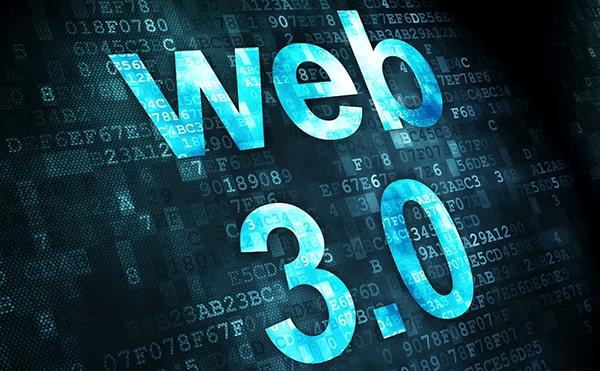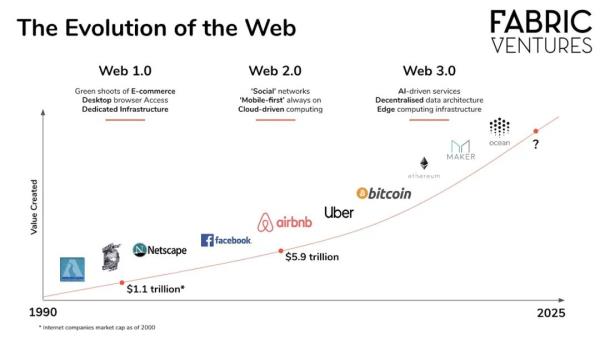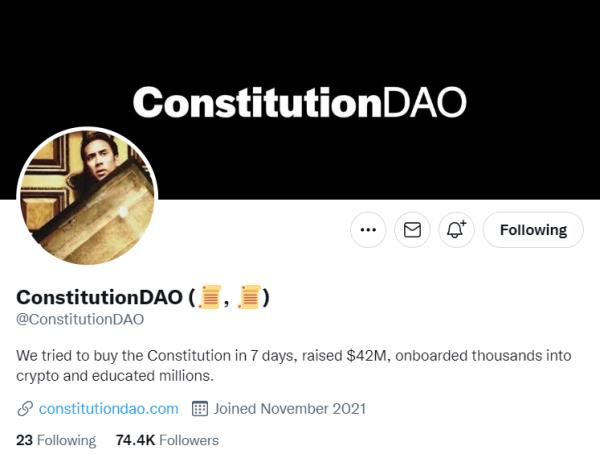
ZT Labs: Web 3.0, The Next Generation Of Internet Advancement
As people all know, Web 3.0 is the buzzword of 2021, and by 2022 it will be even more mainstream, with the search index of“what is Web 3.0” in Google skyrocketing.

Before understanding Web 3.0 you first need to understand the principle of smart contracts, which is very helpful for our understanding of Web 3.0. Let's start with an example of a vending machine where the transaction rules are written in the machine. You press a number, select the item you want to shop for, and put money in. If you put in enough money, the machine spits out the product, and the rules are written to execute a transaction in this way.
Smart contracts work on a similar principle, and they are critical to Web 3.0. By writing rules directly into code, smart contracts allow transactions to be made without going through intermediaries. Vending machines allow you to get snacks without going through a vendor; smart contracts allow you to get anything done without going through a banker, accountant, lawyer, or some other middleman.
What is Web 3.0?
The core of Web 3.0 is the smart contracting of web-based services, where users own the ownership and revenue rights of these smart contracts, which will form a crushing advantage over Web 2.0 applications. Let's take an example often used in the industry, if one day in the future users like to use a certain smart contract online taxi platform, because such a platform only needs a small number of developers, the running cost is very low, the draw is very low, the taxi price is cheaper. After users take a taxi, they can also get Token of this platform, through which they can get the platform's fee income (equivalent to equity) and some other uses. Such an integration of user and shareholder roles will easily beat the existing Web 2.0 taxi platforms.
“Web 1.0 is characterized by“readable”, while Web 2.0 is“readable + writeable”. Although in the Web 2.0 stage, users are the content producers, but the rules are still set by the platform, users do not have the autonomy. Web3.0 shows a new feature of“readable + writable + owned”, users can own and independently verify their digital identity according to the signature and verification mechanism of public and private keys; user data is stored on the chain, and they can independently choose whether to share, with whom to share, and how much information and data to share; meanwhile, the algorithm of smart contract is open and transparent, avoiding underhand operation. avoiding shady operations.”
As a new value Internet, Web3.0 gives users real data autonomy and solves the problems of data monopoly, privacy infringement and giant“evil” in Web2.0 era with a new organization form and business model. Compared with Web 2.0, Web 3.0 is based on the underlying technology of blockchain, which creates a digital world of open collaboration, privacy protection and ecological co-construction led by users, bringing a new paradigm for Internet value, and is also the infrastructure and application for future social, payment, service and transaction markets.
ZT Labs believes that Web 3.0 is essentially a redistribution of Internet value, a digital progression and a meta-universe infrastructure.
The Application Prospects of Web3.0
According to incomplete media statistics, from January 1, 2022 to April 26, 2022, Sequoia Capital, one of the world's largest venture capital firms, has invested in 17 Web3.0 companies at a rate of about one investment per week.
The application scenarios of Web3.0 can be said to be all-encompassing; it covers crypto assets, smart contracts, blockchain technology, hardware infrastructure (VR, AR, storage, sensors, etc.), non-homogenized tokens (NFT), Defi decentralized financial services, metaverse, and a new community governance model, DAO, etc..
Crypto assets are the soul and doctrine of the Web 3.0 society, with them everything is possible, and of course they provide the currency of passage for this society, with them it is possible to implement Web 3.0's own economic system, with crypto assets such as Doge and Shib becoming the focus of attention for large retail and institutional investors. With significant gains, Doge and Shib top the list of the biggest crypto asset gainers in 2021.
Blockchain and smart contracts are equivalent to the land and soil of Web 3.0 society, and all construction, harvesting and activities are based on this soil. ETH, as the“supercomputer” of the blockchain world, currently has a market value of nearly USD 210 billion, and its total locked position value reaches USD 58.46b.
Web3.0 Finance and DeFi, who provide liquid money to the Web3.0 world, bring value to assets, and bring incentives and income to people. Everyone has found that participating in the building of Web3.0 results in a significant increase in revenue. compound, Maker, Aave and other DeFi lending protocols performed well during the market sell-off, while centralized CeFi lenders struggled.
Metaverse and NFT are equivalent to the scenes and digital goods that people consume and move around in the Web 3.0 realm, which is equivalent to transferring our daily life scenes and life goods to the Web 3.0 world through digital means, with NFT sales reaching $31.3 billion in 2021 for OpenSea, the masterpiece of NFT.
Decentralized exchanges are the cornerstone of Web 3.0 and an essential piece of“cryptocurrency Lego”, offering permissionless composability and the ability to create more advanced financial products, with the leading decentralized exchange (DEX), Uniswap, already processing over $1 trillion in transaction volume.
Stablecoins, the anchor of Web 3.0 value, can circulate unhindered in the Web 3.0 digital age. USDC, DAI and other fully/over-collateralized stablecoins help enable payments, especially international payments, with $155 billion of stablecoins currently in circulation.
At the end of 2021, a group of crypto enthusiasts participated in a bid for a first printing of the 1787 U.S. Constitution on display at Sotheby's through a DAO crowdfunding campaign, raising $40 million in 72 hours. ZT Labs considers ConstitutionDAO to be the landmark event that launched the Web 3.0 era.
The application scenarios of Web 3.0 illustrate that it is a new value Internet system, which not only inherits the original application ecology of Web 1.0 and Web 2.0, but also further upgrades the personal ownership of data autonomy on its basis. Secondly, Web3.0 will also create application areas that did not appear in the original Web1.0 and Web2.0, such as the current metaverse prototypes, will be able to develop rapidly in Web3.0.
ZT Labs believes that today's Web3.0 application ecology is still relatively single, the future application ecology to reach a prosperous scene, the emergence of more products to help the arrival of the real Web3.0 era.
Although the market is currently in the bear market stage, the development of Web3.0 is in full swing. The new public chains Aptos and Sui of Meta series are greatly sought after by the capital, the physical brands such as Samsung and Adidas have entered Web3.0 to build virtual stores, and Solana is even expanding offline, building cell phones and opening stores. The road of Web3.0 advancement is moving toward the established goal.
Looking at the global market, right now Web3.0 is still in the early stage of the chaos, and many emerging products, the bubble also appeared. The rise of new products must be accompanied by controversy, and with the influx of more and more participants, it will be able to turn the unclear trend into a clear development line. We are in the era of technological and industrial change, and will witness the next era.
If you have any ideas or questions about Web 3.0, please contact us via ZT Marketing Branding email: , we look forward to talking with you.

Legal Disclaimer:
MENAFN provides the
information “as is” without warranty of any kind. We do not accept
any responsibility or liability for the accuracy, content, images,
videos, licenses, completeness, legality, or reliability of the information
contained in this article. If you have any complaints or copyright
issues related to this article, kindly contact the provider above.




















Comments
No comment